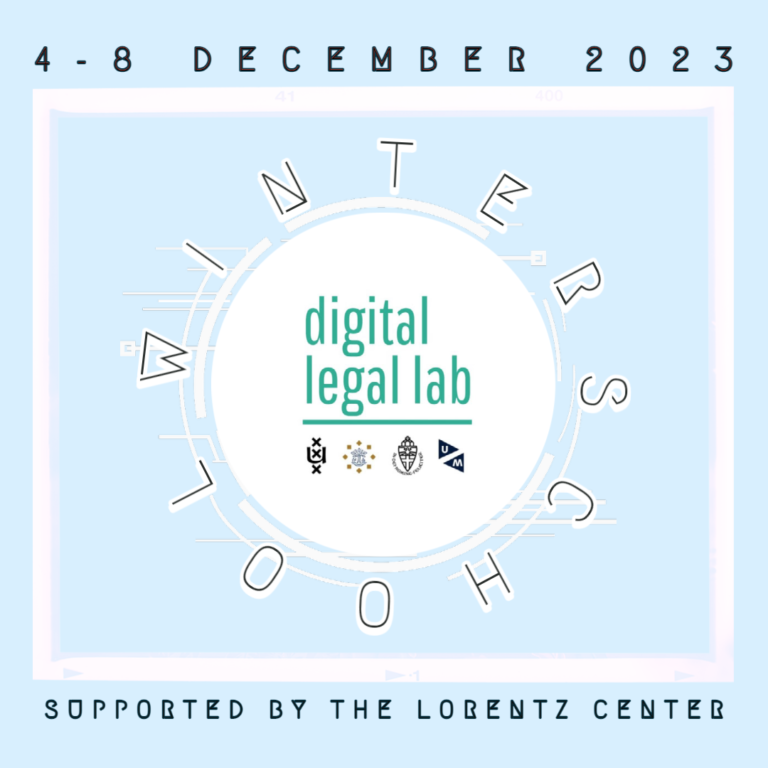Save the date: Winter School 2023
The Digital Legal Lab is excited to announce a winter school titled “Data, personalization, and the law 2023” that we organise from 4 to 8 December 2023 at the Lorentz Center in Leiden, the Netherlands.
The winter school will be dedicated to technological and regulatory developments and interdisciplinary debates in relation to data and personalisation.
The programme will cover topics related to how digital technologies like algorithms, big data analytics, and automated decision-making affect various sectors and the regulatory approaches that are seemingly moving from the conventional regulation of human behaviour to regulating how data behaves; how digital technologies challenge decision-making related to diverse public values, in particular fundamental rights; and how to use data analytics technology in a meaningful way to overcome barriers to access to justice.
The main objective of the winter school is to do a deep dive into law and policy of digital technologies and build a strong network of scholars to further develop the emerging field of Digital Legal Studies. The programme (TBA) is interdisciplinary and designed in an interactive manner to facilitate active co-creation of knowledge by all participants. It combines lectures, interactive workshops and debates, presentations, and soft skill sessions. The programme will be taught by leading experts in their respective fields, including Digital Legal Lab’s own researchers.
The winter school is aimed at early career researchers – PhD students and post-doctoral researchers – active in these topics, from diverse disciplinary and geographical backgrounds. There will be no participation fee and we also plan to cover participants’ accommodation. The application will run from June to August 2023. Keep an eye on this space for the dates, details on the programme, and application requirements!
The winter school is funded by Digital Legal Studies research initiative, through the Law Sector Plan of the Dutch Ministry of Education, Culture and Science (OCW), and is organised with support of Leiden University and the Dutch Science Foundation (NWO).
